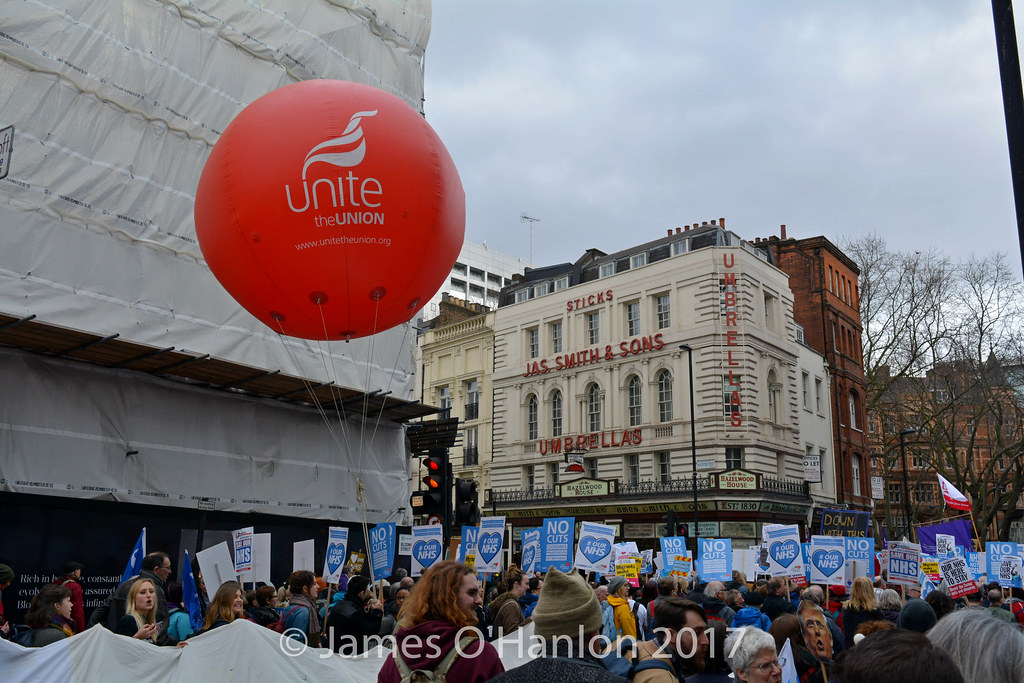In the British media, trade unions are usually reported on in two instances; when they are involved in a significant industrial dispute or when their General Secretary is giving a comment on Labour party politics. The coverage of the Unite’s General Secretary election has been no exception. The demise of industrial relations journalists as a mainstay of the British press has meant important information has been lost or forgotten in the scramble for headlines about whatever crisis is currently engulfing the Labour party. Therefore, there is a consistent void in the coverage of trade unions.
Thus far the contest has been characterised as a battle between one candidate of the right or “mainstream” and three left candidates. This characterisation implies a lot and explains very little.
There has been no mention of what the outcome of this contest would actually entail for members or the differences between all the ‘left’ candidates. Emblematic of this lack of attention to detail has been the failure to note that equally important to the future of Unite is the makeup of its Executive Council. Regardless of who becomes General Secretary, the EC will continue to be controlled by United Left (the most prominent group within Unite) until at least the 2023 elections.
The fact that McCluskey’s retirement does not coincide with the Executive Council elections seems like a shrewd move on his part. If both elections had been held concurrently, Unite might have ended up like UNISON with a newly elected general secretary joined by a new NEC. However, this seems to have eluded most of the reporting on the Unite election, speaking to how warped the focus of the media on the contest has been.
This has resulted in oversaturated media coverage for the need for one unity candidate from the three “left” candidates (Steve Turner, Sharon Graham and Howard Beckett) to win the election. They cite UNISON’s, and to a lesser extent GMB’s, recent general secretary elections as examples of how the left vote split and let the right-wing in.
This is far too simplistic. Both UNISON and GMB’s General Secretary elections featured dynamics that don’t neatly cut across left-right; instead, the most important part of these contests was the issue of institutional reform versus continuity. The lack of understanding of the internal workings of trade unions, and the assumption that they function like political parties, explains the discrepancy in the profiles of Sharon Graham and Howard Beckett who is now out of the race, joining a very generously phrased “joint ticket” with Turner.
Graham, who received the second most branch nominations, is by the far the most interesting candidate in this election. She has a significant organising base within the union but has received a fraction of the attention Beckett has. To anyone analysing the contest, it was predictable that Graham (due to her organising base and being distinct from the current leadership) would receive more nominations than Beckett, who is best known for his blunders, (both during and before the election began) and was largely dependent on community branches which have small memberships and return few votes. This stands in sharp contrast to Graham who has accumulated a range of industrial branch nominations.
Were industrial relations journalists still integral to the British press, more may be known about the internal dynamics of factions within Unite and what implications these have for the future of its members. United Left had split over Turner and Beckett, and previously disgruntled members had already supported Graham’s campaign. Missing from much of the reporting into the election is the fact that both Turner and Beckett were proposing to limit the influence of Unite’s Organising and Leverage Department. This department is led by Graham and is the main reason she’s been able to mount a challenge for General Secretary.
Detailed investigation of the contest would also reveal much about the nature, and organisation, of work in Britain. For instance, many of Graham’s nominations have come from branches in the North-East (Holt’s nominations in the GMB contest largely came from the North-West) while many of Turner’s are from the manufacturing sector. A deeper dive into these nominations would provide insights into the nature of workers’ organisation in terms of geography and employment; though, admittedly, it would tell us little about Labour’s NEC.
This election is genuinely important; the pandemic has made life even tougher for workers, and one hopes that whoever is elected to be Unite General Secretary excels at the role. Trade unions are interesting; there is no reason to suppose that people would not be interested in reading detailed reporting of this contest. The impact of the lack of industrial relations reporting has meant more than what’s mentioned in this article about the inner workings of Unite. The vital work of trade unions, such as the TUC’s role in the formulation of the furlough scheme, is rarely discussed or even acknowledged. Ultimately, the coverage of the Unite election shows that too many political commentators do not understand, or really care about, trade unions and society is the poorer for it.


